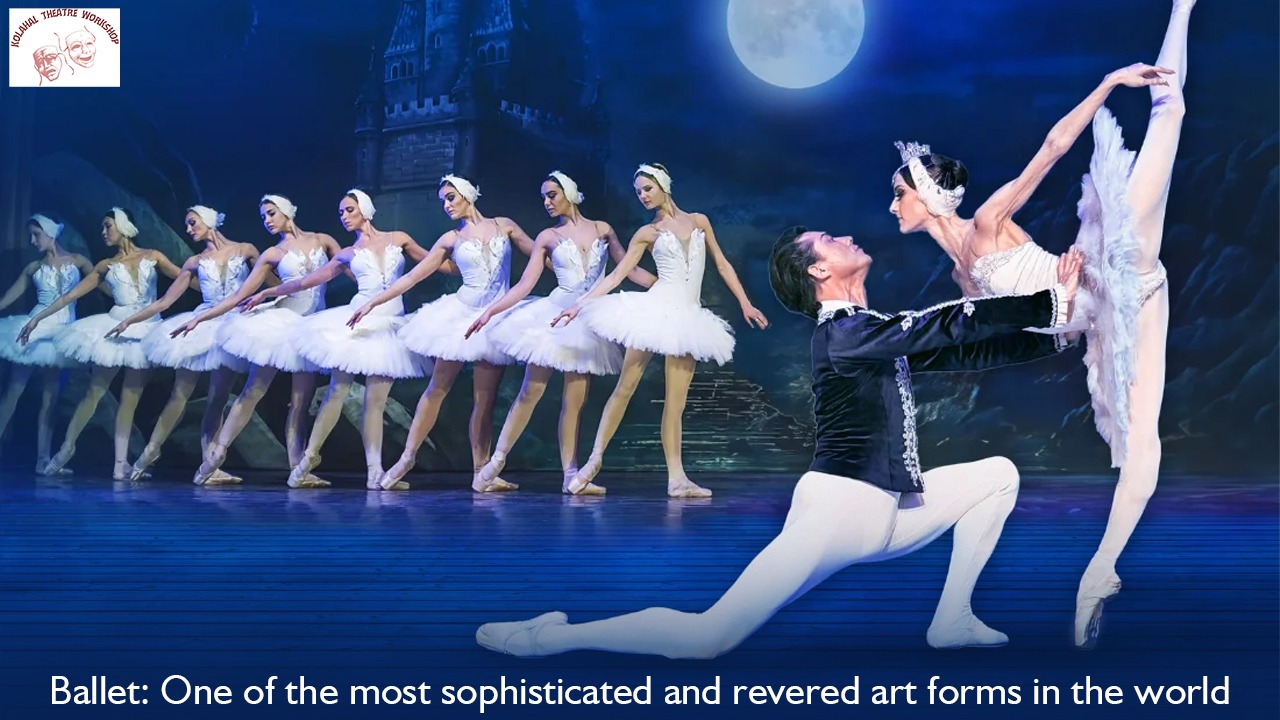SHAKESPEARE’S CONTRIBUTION TO THEATRE : THE PLAYWRIGHT
SHAKESPEARE’S CONTRIBUTION TO THEATRE : THE PLAYWRIGHT WHOSE WORKS TRANSCEND TIME
Shakespeare’s contribution to theatre is incalculable. Born into a family of modest means in Elizabethan England, he became the greatest writer in the history of English language and England’s national poet. His works consist of approximately 38 plays, 154 sonnets, two long narrative poems .
Till date, countless theatre festivals around the world honour his works and his works have been a major influence on subsequent theatre. Shakespeare created some of the most admired plays in western literature and brought transformation in English theatre by expanding expectations about what could be accomplished through plot and language. Shakespeare’s work is also lauded for its emotion. His themes relating to human condition and his contact with popular thinking gave vitality to his language and made him more popular than any of his contemporaries.
SHAKESPEARE’S INFLUENCE ON THEATRE : THE CHANGES USHERED IN BY HIS PLAYS
Shakespeare is the most highly regarded dramatist in the world. His influence on theatre is just as pronounced today as it was centuries ago. He was the foremost playwright who appealed to the masses and established a connect with his audience. Prior to him, theatre was uniquely reserved for the wealthy and educated. With the emergence of Shakespeare’s writing, came tales that were imbued with universal truth of human existence and as a result, the experience of Shakespeare’s plays in theatre took a populist turn.
SHAKESPEARE’S CONTRIBUTION TO THEATRE ,Not only these, theatre has experienced many changes due to his influence. In plays like Hamlet, Shakespeare integrated characterization with plot . For instance if the main character was different in any way, the plot would have changed, too. In Romeo and Juliet, Shakespeare mixed tragedy and comedy together and created a new genre called Romantic tragedy. Some experts are of the opinion that adaptation of Shakespeare’s plays into 20th century production changed the form as well as functions of musicals. However, adaptation of Shakespeare’s plays paved the way for musical performances to become an integral part of the drama.
ADAPTATION OF SHAKESPEARE’S PLAYS IN BENGALI THEATRE :
Bengali theatre is no exception to this. Utpal Dutt was the first to enter Bengali main stream drama through translation of Shakespeare. Associated with several Shakespeare productions like Macbeth, Julius Ceasar, Othello, Romeo and Juliet, A Midsummer night’s dream, etc. In recent time, some of the notable adaptations of Shakespeare’s works include Raja Lear by Suman Mukhopadhyay .Othello by Goutam Haldar. A new interpretation of Macbeth in the current political scenario of Bengal by Kaushik Sen and Hamlet by Bibhas Chakroborty. A pastiche on Macbeth by Kolahal Theatre Workshop ” Mukhoshtantra “
Thus the Bard of Avon continues to live in the hearts of millions through his works, which transcend time.
20 Facts that You Don’t Know about William SHAKESPEARE’S CONTRIBUTION TO THEATRE
1. Some people think Shakespeare was a fraud.
How did a provincial commoner who had never gone to college or ventured outside Stratford become one of the most prolific, worldly and eloquent writers in history? Even early in his career, Shakespeare was spinning tales that displayed in-depth knowledge of international affairs, European capitals and history, as well as familiarity with the royal court and high society. For this reason, some theorists have suggested that one or several authors wishing to conceal their true identity used the person of William Shakespeare as a front. Proposed candidates include Edward De Vere, Francis Bacon, Christopher Marlowe and Mary Sidney Herbert. Most scholars and literary historians remain skeptical about this hypothesis, although many suspect Shakespeare sometimes collaborated with other playwrights.
2. Shakespeare introduced almost 3,000 words to the English.
Shakespeare has been credited by the Oxford English Dictionary with introducing almost 3,000 words to the English language. Estimations of his vocabulary range from 17,000 to a dizzying 29,000 words – at least double the number of words used by the average conversationalist.
3. We probably don’t spell Shakespeare’s name correctly.
Sources from William Shakespeare’s lifetime spell his last name in more than 80 different ways, ranging from “Shappere” to “Shaxberd.” In the handful of signatures that have survived, the Bard never spelled his own name “William Shakespeare,” using variations or abbreviations such as “Willm Shakp,” “Willm Shakspere” and “William Shakspeare” instead. However it’s spelled, Shakespeare is thought to derive from the Old English words “schakken” (“to brandish”) and “speer” (“spear”), and probably referred to a confrontational or argumentative person.
4. Shakespeare penned a curse for his grave, daring anyone to move his body
His epitaph was:
Good friend for Jesus’ sake forbear,
To dig the dust enclosed here:
And curst be he that moves my bones.
Because Stratford’s most famous citizen knew that ordinary parishioners weren’t normally granted permanent tenure when they were buried inside the sanctuary, one reason for the writing of this verse incantation was to conjure away a possible eviction.
5. Shakespeare’s skull probably stolen by grave robbers, study finds.
A story often dismissed as wild fiction, that 18th-century grave robbers stole Shakespeare’s skull, appears to be true. The first archaeological investigation of Shakespeare’s grave at Holy Trinity church in Stratford-on-Avon has been carried out for a documentary in 2016. The most striking conclusion is that Shakespeare’s head appears to be missing and that the skull was probably stolen from what is a shallow grave by trophy hunters.
Grave-robbing was a big thing in the 17th and 18th century. People wanted the skull of famous people so they could potentially analyse it and see what made them a genius. It is no surprise that Shakespeare’s remains were a target.
6. Suicide occurs an unlucky thirteen times in Shakespeare’s plays.
It occurs in Romeo and Juliet where both Romeo and Juliet commit suicide, in Julius Caesar where both Cassius and Brutus die by consensual stabbing, as well as Brutus’ wife Portia.
7. The Comedy of Errors is Shakespeare’s shortest play
The Comedy of Errors is Shakespeare’s shortest play at just 1,770 lines long.
8. The longest word in Shakespeare is honorificabilitudinitatibus
Although he showed off his French skills in Henry V, Shakespeare was sparing when it came to the use of Latin. With such diverse audiences, he needed to ensure that everyone could understand what was going on in his plays. Shakespeare use the word honorificabilitudinitatibus in the play Love’s Labour’s Lost. The Collins English Dictionary definition of the word is “invincible glorious honorableness. It is the ablative plural of the Latin contrived honorificabilitudinitas…”
9. Nobody knows Shakespeare’s true birthday.
The closest we can come is the date of his baptism on April the 26th, 1564. By tradition and guesswork, William is assumed to have been born three days earlier on April the 23rd, a date now commonly used to celebrate the famous Bard’s birthday.
10. Shakespeare’s parents were probably illiterate, and his children almost certainly were.
Nobody knows for sure, but it’s quite likely that John and Mary Shakespeare never learned to read or write, as was often the case for people of their standing during the Elizabethan era.
11. The cause of Shakespeare’s death is a mystery.
An entry in the diary of John Ward, the vicar of Holy Trinity Church in Stratford (where Shakespeare is buried), tells us that “Shakespeare, Drayton, and Ben Jonson had a merry meeting and it seems drank too hard, for Shakespeare died of a fever there contracted.” However Ward, a self-proclaimed Shakespeare fan, wrote his diary fifty years after Shakespeare died and most historians agree it appears to be a baseless anecdote. It should be noted though that a serious outbreak of typhus, known as the “new fever”, in 1616 (the year Shakespeare died), lends credibility to Ward’s story.
12. Shakespeare is also a actor.
Few people realize that aside from writing 37 plays and composing 154 sonnets, William was also an actor who performed many of his own plays as well as those of other playwrights (Ben Jonson).
13. Shakespeare is rich during his lifetime.
Unlike most famous artists of his time, the Bard did not die in poverty. When he died, his will contained several large holdings of land.
14. Shakespeare married an older woman who was three months pregnant at the time.
In November 1582, 18-year-old William wed Anne Hathaway, a farmer’s daughter eight years his senior. Instead of the customary three times, the couple’s intention to marry was only announced at church once – evidence that the union was hastily arranged because of Anne’s eyebrow-raising condition. Six months after the wedding, the Shakespeares welcomed a daughter, Susanna.
15. Nobody knows what Shakespeare did between 1585 and 1592.
To the dismay of his biographers, Shakespeare disappears from the historical record between 1585. Historians have speculated that he worked as a schoolteacher, studied law, traveled across continental Europe or joined an acting troupe that was passing through Stratford.
16. Shakespeare had seven siblings.
Shakespeare had seven siblings: Firstly Joan (b 1558, only lived 2 months); Secondly Margaret (b 1562); Thirdly Gilbert (b 1566); another Joan (b 1569); fifthly Anne (b 1571); another Richard (b 1574) and Edmund (b 1580).
17. Shakespeare, one of literature’s greatest figures, never attended university.
Shakespeare would have attended King Edward VI Grammar School in Stratford-upon-Avon from the age of 7 in 1571 and left school and formal education when he was fourteen in 1578. Shakespeare’s daily activities after he left school and before he re-emerged as a professional actor in the late 1580s are impossible to trace. For instance he might have worked as a schoolmaster or lawyer or glover with his father and brother, Gilbert, are all plausible. So too is the argument that Shakespeare studied intensely to become a master at his literary craft, and honed his acting skills while traveling and visiting playhouses outside of Stratford.
18. Shakespeare lived through the Black Death.
This epidemic that killed over 33,000 in London alone in 1603 when Will was 39, later returned in 1608.
19. Shakespeare lived a double life
By the seventeenth century he had become a famous playwright in London but in his hometown of Stratford, where his wife and children were, and which he visited frequently, he was a well known and highly respected businessman and property owner.
20. It’s likely that Shakespeare wore a gold hoop earring in his left ear.
In one of the most famous depictions, known as the Chandos portrait after its onetime owner, the subject has a full beard, a receding hairline, loosened shirt-ties and a shiny gold hoop dangling from his left ear. However Even back in Shakespeare’s time, earrings on men were trendy hallmarks of a bohemian lifestyle, as evidenced by images of other Elizabethan artists.
Conclusion
A complete collection of his works did not appear until the publication of the First Folio in 1623 . Nonetheless, his contemporaries recognized Shakespeare’s achievements. Francis Meres cited “honey-tongued” Shakespeare for his plays and poems in 1598, . Chamberlain’s Men rose to become the leading dramatic company in London, installed as members of the royal household in 1603.
Sometime after 1612, Shakespeare retired from the stage and returned to his home in Stratford. He drew up his will in January of 1616 . In addition The Will included his famous bequest to his wife of his “second best bed.” . He died on April 23, 1616, and was buried two days later at Stratford Church.







Awesome post! Keep up the great work! 🙂
Long time supporter, and thought I’d drop a comment.
Your organization’s wordpress site is very sleek –
hope you don’t mind me asking what theme you’re using? (and don’t
mind if I steal it? :P)
I just launched my small businesses site –also built in wordpress like yours– but the theme slows (!) the site down quite a bit.
In case you have a minute, you can find it by searching for “royal cbd” on Google (would appreciate any feedback)
– it’s still in the works.
Keep up the good work– and hope you all take care of yourself during the coronavirus scare!
~Justin
[…] https://kolahal.org/2020/01/21/shakespeares-contribution-to-theatre-the-playwright-whose-works-trans… […]
[…] https://kolahal.org/2020/01/21/shakespeares-contribution-to-theatre-the-playwright-whose-works-trans… […]